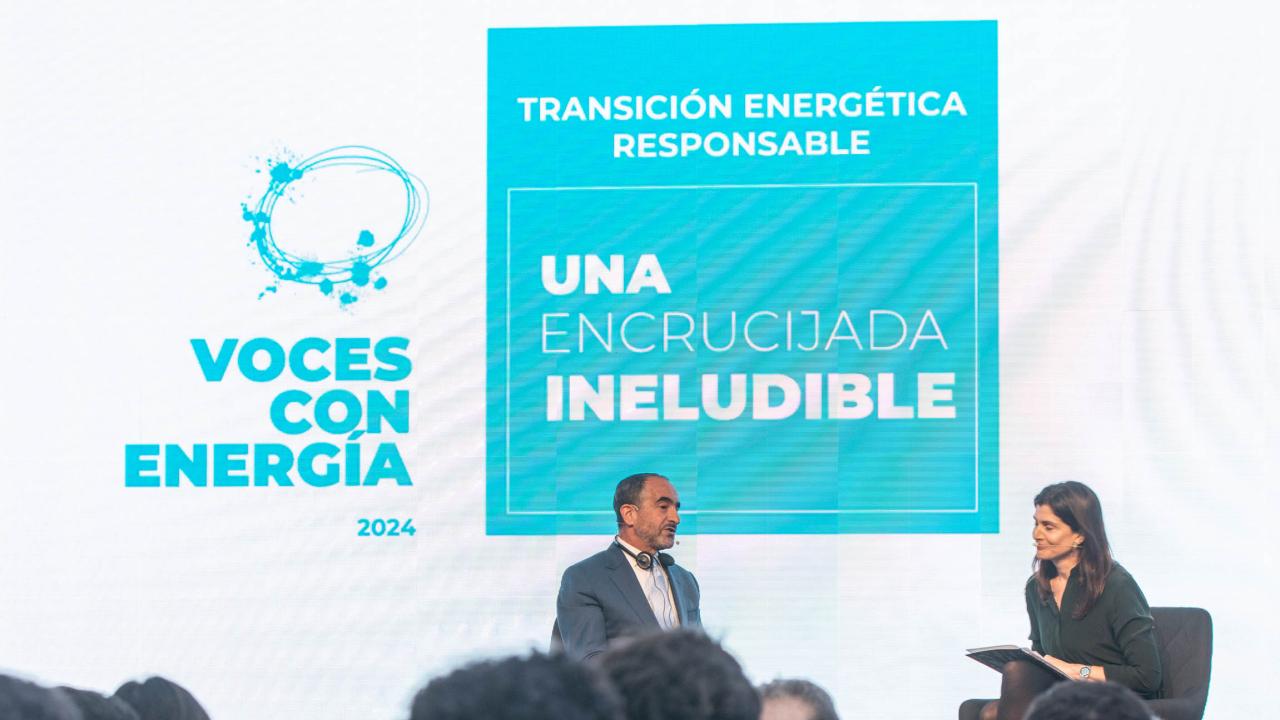
The Chilean energy transition has two worlds in one: it is an example of adoption and development of clean energy sources to achieve the energy transition. But at the same time it must fix its energy market, "with price signals that make investments efficient," says the analyst.
The British Michael Liebreich, founder of Bloomberg New Energy Finance, was in Chile this week to talk about clean energy and its development in Chile.
The timing could not have been more appropriate, in a country where the issue of electricity has been in the headlines for two months, when the increase of up to 70% in electricity bills was known and that has only been increased after the supply cuts caused by a wind storm.
Liebreich praised the country's notable progress in adopting and developing clean energy sources to achieve the energy transition. "In many ways, Chile is now a postcard of the future in the areas where I work every day (renewable energies). Chile is a postcard of the future because it has come very far and very fast," he said.
His statements were made in a new version of the annual "Voices with Energy" seminar, organized by the electric company Colbún, in which leaders from the energy sector, academia and authorities met to discuss and reflect on public policies in the industry, and the energy transition.
Among his main reflections, Liebreich highlighted the three elements that Chile needs to continue advancing in the energy transition.
The first of them is digitalization. “You can't do anything without digitizing everything. The integration of digital technologies in the management and operation of the electrical grid allows for greater efficiency, reliability and responsiveness,” he stated. Along these lines, the expert specified that the country needs to implement advanced monitoring and control systems, as well as promote the adoption of intelligent solutions that optimize the use of resources and facilitate the incorporation of renewable energies.
Secondly, the CEO of Liebreich Associates pointed to transmission as another fundamental pillar for the development of the electricity sector in Chile, highlighting that projects such as the Kimal-Lo Aguirre line will be of great help.
But he warned that "when they finish building it, they will realize that they need another one, that is, the need for more transmission infrastructure will become evident." The expert added that “it is crucial that they invest in the expansion and modernization of their transmission network to ensure that the energy generated, especially from renewable sources, can reach consumption centers efficiently and safely. A robust and well-planned network will allow Chile to fully exploit its energy potential and guarantee the stability of the electricity supply.”
Thirdly, Liebreich stressed the importance of reforming the electricity market. “They have to fix their energy market, with price signals that make investments efficient. In recent years we have seen investments being abandoned because the return could not be generated. “This is a market problem, not an engineering problem,” explained the founder of Bloomberg New Energy Finance.
A COMPLEX AND GRAVITING MARKET
Having faith in the Chilean system also means criticizing its shortcomings. And both Liebrich and the CEO of Colbún, José Ignacio Escobar, wanted to highlight the problems that "the diligent boy in the neighborhood" has, as they call Chile in terms of energy compliance.
Leibreich referred to the distortions in the National Electrical System that must be fixed. “There are distributed generators of up to 9 MW. That's not a distributed generator, distributed is when there's a solar panel on the roof here, in a conference center, in a hotel, in your house, in your office, or in the park or whatever. When you get to 9 MW and you subsidize it, that is a problem, to be honest,” he said.
Meanwhile, Escobar delved into the elements necessary to face this strong demand for energy and advance the energy transition.
“Today we have the unique opportunity to continue being leaders in the adoption of renewable energy. And not only that, but in attracting related investments. But for this, we need to create the enabling conditions that allow us to continue moving forward with certainty and a sense of reality. We need a permit system that provides legal certainty and is capable of implementing the correct evaluation of projects, with clarity, transparency and, above all, with uniform criteria in the different regions of the country that ensure respect for the guidelines of the central authority. This includes the reform of the project that strengthens environmental institutions and the Framework Law on sectoral authorizations, among others,” Escobar explained.
In addition, Escobar highlighted the need to be responsible in the different measures taken in the electricity sector, as a result of the unfreezing of rates.
“Any step we take has to be faced with responsibility. And the reality that, in terms of energy, we have experienced in recent weeks, confirms this to us. For the energy transition to truly benefit us all, every gear that makes up our complex industry must work perfectly. Just as the withdrawals from pension funds reminded all Chileans of what tortuous inflation was, what has happened in recent months in electricity matters reminds us all, from all sectors, how delicate it is to manipulate, "without technical bases, a market as complex and at the same time, so important for people and the economy, as is the electricity market," said the CEO of Colbún, who also referred to the process of unfreezing electricity rates that has caused a shock in that country.
“We know that it is a delicate problem, and this is not the time to delve into it, but at least I want to express that it is too important that the institutionality of the electrical system is far from the sometimes voluntaristic interventionism of politics,” he concluded.









